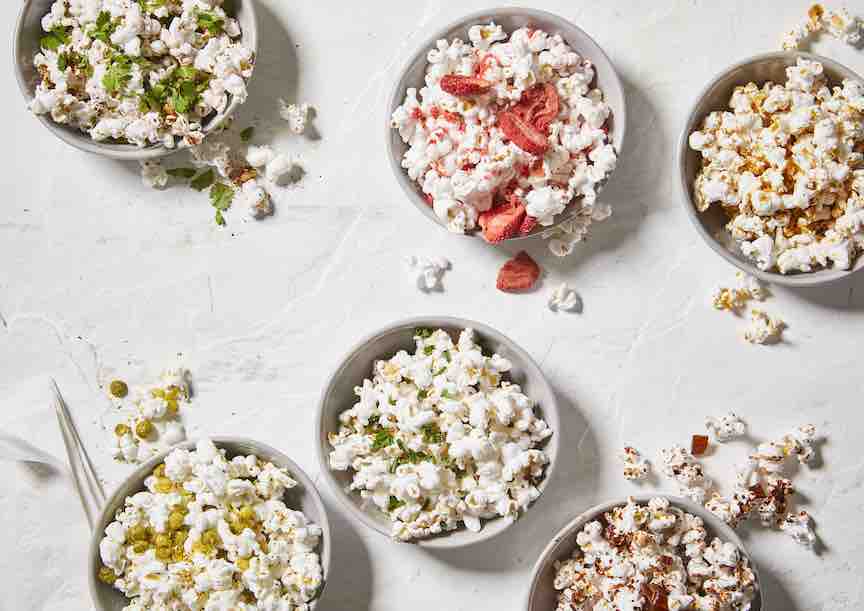Adapted from Rebootwithjoe.com.
Does this ever happen to you: You take the time to review healthy recipes, make a shopping list, get to the store, put everything away, and then all of a sudden the week has flown by, and your gorgeous, expensive produce has wilted into a mushy brown mess? Nothing is more discouraging than wasting food when trying to eat healthy. The good news is that this doesn’t have to keep happening. You can use these simple tips to keep your veggies alive and well for much longer. I’ve also included tips for accelerating ripening or delaying ripening/spoilage.
Tips to Accelerate Ripening
Here are tips for helping your produce ripen more quickly.
- Store hard, unripe avocados in a brown paper bag on the counter.
- Keep high-ethylene fruits near each other. These include avocados, peaches, apples, cantaloupes, honeydew, bananas, tomatoes, pears, and plums.
Tips to Delay Ripening or Spoilage
- “Produce that sits together, ripens together.” To prevent your apples or potatoes from becoming brown and mealy too fast, keep them away from your bananas! While these are all best stored on the counter, they certainly shouldn’t be stored together. That’s because ethylene, the “fruit-ripening gas,” is naturally emitted to help ripen fruit and will speed ripening and spoilage in nearby produce. Keep ethylene-sensitive fruits and vegetables away from ethylene producers. Ethylene-sensitive fruits and vegetables include apples, melons, potatoes, and mangoes. Refer to this chart for a more comprehensive list.
- Fruits that are bruised or damaged ripen faster, so eat them first.
- Wait to wash your fruits and veggies until you’re ready to use them.
- Fruits that kept in plastic will ripen faster, usually too fast. Store them loose.
- Cut the greens or stems off of beets, and store the beet roots in an open container covered with a damp towel in the refrigerator. Save those beet greens—they’re delicious! (Fun tip: left intact, beet leaves tend to pull the moisture from the root, causing them to wilt prematurely. Trim, wash, wrap in a damp paper towel, then store in an open-ended bag to maximize freshness)
In or Out?
Many fruits and veggies last longer on the counter, while others will perish if left out of the refrigerator. Here’s a quick guide, sorted by storage location.
In the Fridge:
Store the following items in the refrigerator.
- Ripe fruits you want to keep fresh longer.
- Chopped fruits or veggies: Store in glass or BPA-free plastic containers if possible.
- Root vegetables, including carrots, beets, radishes, parsnips, and turnips: Remove the greens first and bag them as described below.
- Leafy greens and herbs: Wash and pat dry (or use a salad spinner), then wrap in a damp paper towel and refrigerate in an open-ended bag.
- Berries and mushrooms: Store in their original packaging.
- Eggplant: Store inside a paper bag to slow ripening.
- Corn—It’s best to eat fresh cob corn immediately after purchasing, but when that’s not possible, refrigerate it with husks intact, for no more than two days. There’s no need to boil local, fresh corn; just peel it and eat!
- Most other vegetables can be kept in open-ended bags or in the vegetable drawer/crisper (unbagged). Examples include broccoli, bell peppers, cucumbers, fennel, scallions, cauliflower, celery, Brussels sprouts, summer squashes, and ginger.
On the Counter or in the Pantry:
Keep the following items out of the refrigerator in a cool, dry space, away from direct sunlight.
- Potatoes (all).
- Winter squashes.
- Bananas: Store in a paper bag to speed ripening, or move to the refrigerator to slow it.
- Stone fruits (peaches, plums, nectarines, apricots, cherries).
- Whole pineapples and melons.
- Apples that are not too ripe.
- Citrus (lemon, lime, orange, grapefruit): Move to the refrigerator if you want to slow ripening.
- Avocados: Store in a paper bag to speed ripening, or move to the refrigerator to slow it.
Don’t Forget About Frozen
Frozen veggies stay good much longer than fresh and are a perfect back up to have on hand for those busy weeknight dinners.
Related News
Save 40% This WeekOn Forks Meal Planner

Forks Meal Planner takes the hard work out of making nutritious meals the whole family will enjoy.
SAVE $200 ON OUR ULTIMATE COURSE

Join our best-selling course at a new lower price!



